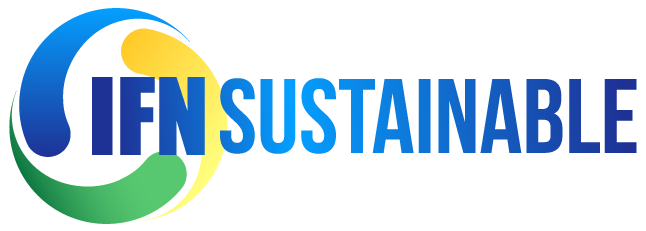
Prophet Muhammad said: “The most preferred to Allah of good deeds are regular and consistent ones, no matter how small they are.”

This statement succinctly summarizes the Islamic approach to development: steady and consistent progress rather than quick and abrupt growth. “Haste makes waste,” as the saying goes.
Sustainable economic progress requires sustaining resources and therefore economizing on them. We live in a finite world, and resources are eventually depletable. So, how to economize on resources?
We cannot economize by simply reducing the utilization of these resources. Instead, we should be using them to build and uncover new and environmentally better resources that outlive the existing ones. And then using the new resources to build and explore yet additional and better ones to outlive them, and so on. In other words, sustainable development requires continuous efforts to build and discover resources for the future. Although no single resource can live forever, this strategy helps to consistently create sustainable resources.
And what is the most important resource on Earth? It is humans. Human capital is the most valuable asset in the economy. The best way, therefore, to sustain resources is to invest in human beings. This is why health and education are the most valuable, long-term, investments.
Humans are the most creative and innovative creatures on Earth, and that is why they are the most productive and able to discover better resources. One important reason why we are facing environmental crises is that we are taught that the primary objective of man is consumption, not long-term sustained production.

If you pick a microeconomics textbook, you will find that the objective of the ‘economic man’ is to maximize the utility of consumption. This is very different from the objective of sustaining resources. Only under very narrow and hypothetical conditions, the two perspectives might lead to the same outcome. But in a rich and complex world like the one in which we live, the two perspectives diverge much more often than they converge. When the objective of economic activity is to sustain resources, production takes priority over consumption, because we want to build productive resources for the future.
It is essential, therefore, to integrate sustainable development into mainstream economics. Believe it or not, today there are mainstream textbooks that question the size or extent of climate change and undermine the threat it poses to our existence. If the youth learn this in school, our battle against climate change will be a losing one. To win the battle, we must win over the new generation who in a few years will be leaders in their societies and will, therefore, be able to make a lasting impact. Economic textbooks should make sustaining resources the primary objective of the economic man rather than selfish, short-term, consumption.
And this brings us to Islamic finance. To finance sustainable development, financing mechanisms must be sustainable as well. Take, for example, the prohibition of Riba, a major principle of Islamic finance.
The essence of Islamic finance is that finance must be integrated with the real economy. We cannot make money out of money — we must participate in trade or production to earn profits. Interest-based lending decouples financing from the real economy, leading to the self-multiplication of debt. As debt grows faster than wealth, the burden of debt services puts huge pressure on economic resources to catch up with the unbounded growth of debt. But this is a losing game because self-multiplication will necessarily outgrow the economy, no matter how hard people work and no matter how fast they extract economic resources. This inevitably leads to crashes and depressions, resulting in yet another round of waste of resources. The prohibition of Riba, therefore, is critical for sustaining economic resources.
Islamic finance integrates universal moral values with economic activities. This integration is essential to achieve sustainable development and to overcome the climate crisis the world is facing today.
To see this, we should note that the climate crisis has two dimensions: time dimension and space dimension.
The time dimension extends over generations. The narrow perspective of giving substantial priority to the present over the future encourages us to forget about the future and enjoy the current moment. When each generation follows the same strategy, it is almost certain that humanity will not survive the climate crisis.
This is where moral values come into play. If we care enough about future generations, then we must act now to save humanity. To care about future generations means to care about humanity, and to care about humanity means to care about oneself.
The whole concept of “sustainable development” is based on the ability to see the future clear enough to plan and to sustain resources, not only for this generation but for the coming generations as well. Moral values help to balance the present versus the future. The lack of this balance is a major factor behind the environmental threats that humanity faces today.
The space dimension of sustainability is reflected in the collective action it requires. Curbing the climate crisis is a form of a ‘prisoner’s dilemma’ game, where cooperation is necessary to achieve optimal outcomes. However, there is always the incentive for the few to deviate from the group to win short-term gains at the expense of the community. But if everyone follows the same strategy, everyone loses. Moral values are necessary to control selfish motives and to balance self-interest vs. group interest.
So, we can see why moral values are essential for optimal and sustainable economic performance.
We have to remember that the Earth was created for all mankind of all races and cultures. A threat to the environment is a threat to humanity as a whole. Saving humanity is a decent Islamic value. The Holy Quran says: “And whoever saves a life is as though he had saved all mankind.”

Dr Sami Al-Suwailem is the acting director general of the IsDB Institute. He can be contacted at [email protected].



